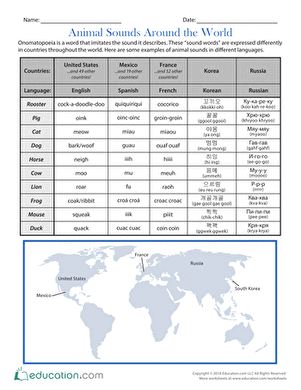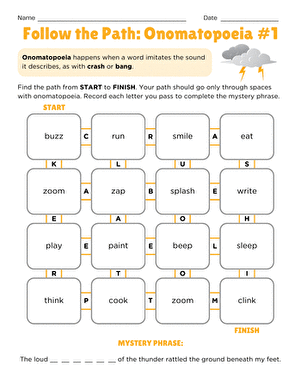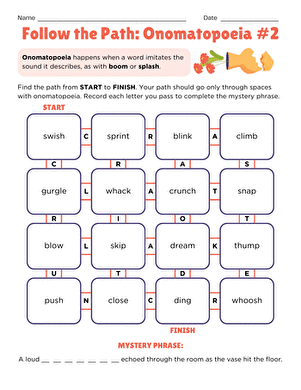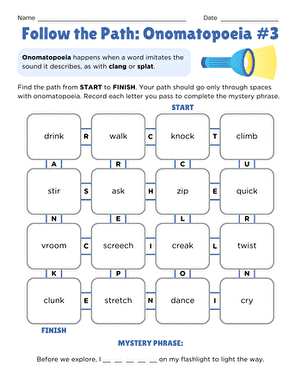3rd Grade Onomatopoeia Resources
About 3rd Grade Onomatopoeia Resources
On Education.com, 3rd grade onomatopoeia resources include printable worksheets, interactive games, and lesson plans that help students learn to identify and use words that imitate sounds. This characteristic emphasizes the sounds animals, objects, and actions make, making language fun and engaging. These materials support early phonetic awareness, vocabulary development, and creative writing skills.
Parents and teachers can access a range of 3rd grade onomatopoeia activities on Education.com, including matching exercises, fill-in-the-blank exercises, and classroom crafts. Each worksheet and game is designed to reinforce classroom learning and encourage students to recognize and incorporate sound words into speech and writing. The structured format makes practice both educational and entertaining.
Educators and parents can save time planning exercises by using ready-made, standards-aligned resources that are easy to print, download, and incorporate into lessons or homework. With practical onomatopoeia worksheets and activities, learners can develop confidence in language skills while having fun exploring sounds and creating engaging sentences.
Parents and teachers can access a range of 3rd grade onomatopoeia activities on Education.com, including matching exercises, fill-in-the-blank exercises, and classroom crafts. Each worksheet and game is designed to reinforce classroom learning and encourage students to recognize and incorporate sound words into speech and writing. The structured format makes practice both educational and entertaining.
Educators and parents can save time planning exercises by using ready-made, standards-aligned resources that are easy to print, download, and incorporate into lessons or homework. With practical onomatopoeia worksheets and activities, learners can develop confidence in language skills while having fun exploring sounds and creating engaging sentences.









